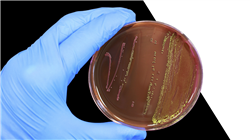University certificate
The world's largest faculty of medicine”
Introduction to the Program
Thanks to this 100% online Postgraduate diploma, you will delve into the fundamental principles of healthcare management, equipping you with the skills to address the complex challenges of Public Health"

Public Health Management is at a crucial moment, marked by the continuous evolution of global health threats, such as the COVID-19 pandemic, as well as by technological advances and the growing awareness of the importance of equity in access to health care.
This is how this Postgraduate diploma in Public Health Management was born, which will address a wide range of essential content to understand and address the challenges in the field of Public Health Management. In this sense, a solid foundation will be established by exploring health as an integral and global concept, as well as by analyzing the most relevant health determinants in the current situation. In addition, models of international collaboration in health will be examined and international policies and legal frameworks will be reviewed.
Communication processes and their application in this context will also be covered, as well as the use of social networks and other platforms as key tools for intervention and dissemination of public health information. In addition, the technological developments available and the emerging role of Artificial Intelligence in the improvement of community health.
Finally, the syllabus will focus on the evaluation of public health policies and programs, recognizing its importance as an essential part of the development and continuous improvement of health interventions. It will also present evaluation models, qualitative and quantitative tools, as well as methods to measure and analyze health outcomes.
At this juncture, an academic program of excellence has been developed, completely online, in order to meet the individual needs of students and avoid additional difficulties, such as travel to a physical campus and adaptation to established schedules. In addition, the innovative Relearning methodology is introduced, which involves the repetition of key concepts for an optimal understanding of the contents.
You will be able to successfully perform in leadership roles in health organizations, government agencies and NGOs, contributing to the improvement of health systems at international levels. Enroll now!”
This Postgraduate diploma in Public Health Management contains the most complete and up-to-date scientific program on the market. The most important features include:
- The development of practical cases presented by experts in Public Health Management
- The graphic, schematic and eminently practical contents with which it is conceived gather scientific and practical information on those disciplines that are indispensable for professional practice
- Practical exercises where self-assessment can be used to improve learning
- Its special emphasis on innovative methodologies
- Theoretical lessons, questions to the expert, debate forums on controversial topics, and individual reflection assignments
- Content that is accessible from any fixed or portable device with an Internet connection
You will be immersed in evaluation models, and qualitative and quantitative tools, as well as methods for measuring and analyzing health outcomes, thanks to an extensive library of multimedia resources"
The program’s teaching staff includes professionals from the sector who contribute their work experience to this specializing program, as well as renowned specialists from leading societies and prestigious universities.
The multimedia content, developed with the latest educational technology, will provide the professional with situated and contextual learning, i.e., a simulated environment that will provide immersive education programmed to learn in real situations.
This program is designed around Problem-Based Learning, whereby the professional must try to solve the different professional practice situations that arise during the course. For this purpose, students will be assisted by an innovative interactive video system created by renowned and experienced experts.
You will analyze the models of international collaboration in health and review the policies and legal frameworks at the international level, all through the best didactic materials, at the forefront of technology and education"

You will delve into communication processes and their application in Public Health, as well as the use of social networks and other platforms as key tools for intervention and information dissemination"
Why study at TECH?
TECH is the world’s largest online university. With an impressive catalog of more than 14,000 university programs available in 11 languages, it is positioned as a leader in employability, with a 99% job placement rate. In addition, it relies on an enormous faculty of more than 6,000 professors of the highest international renown.

Study at the world's largest online university and guarantee your professional success. The future starts at TECH”
The world’s best online university according to FORBES
The prestigious Forbes magazine, specialized in business and finance, has highlighted TECH as “the world's best online university” This is what they have recently stated in an article in their digital edition in which they echo the success story of this institution, “thanks to the academic offer it provides, the selection of its teaching staff, and an innovative learning method aimed at educating the professionals of the future”
A revolutionary study method, a cutting-edge faculty and a practical focus: the key to TECH's success.
The most complete study plans on the university scene
TECH offers the most complete study plans on the university scene, with syllabuses that cover fundamental concepts and, at the same time, the main scientific advances in their specific scientific areas. In addition, these programs are continuously being updated to guarantee students the academic vanguard and the most in-demand professional skills. In this way, the university's qualifications provide its graduates with a significant advantage to propel their careers to success.
TECH offers the most comprehensive and intensive study plans on the current university scene.
A world-class teaching staff
TECH's teaching staff is made up of more than 6,000 professors with the highest international recognition. Professors, researchers and top executives of multinational companies, including Isaiah Covington, performance coach of the Boston Celtics; Magda Romanska, principal investigator at Harvard MetaLAB; Ignacio Wistumba, chairman of the department of translational molecular pathology at MD Anderson Cancer Center; and D.W. Pine, creative director of TIME magazine, among others.
Internationally renowned experts, specialized in different branches of Health, Technology, Communication and Business, form part of the TECH faculty.
A unique learning method
TECH is the first university to use Relearning in all its programs. It is the best online learning methodology, accredited with international teaching quality certifications, provided by prestigious educational agencies. In addition, this disruptive educational model is complemented with the “Case Method”, thereby setting up a unique online teaching strategy. Innovative teaching resources are also implemented, including detailed videos, infographics and interactive summaries.
TECH combines Relearning and the Case Method in all its university programs to guarantee excellent theoretical and practical learning, studying whenever and wherever you want.
The world's largest online university
TECH is the world’s largest online university. We are the largest educational institution, with the best and widest online educational catalog, one hundred percent online and covering the vast majority of areas of knowledge. We offer a large selection of our own degrees and accredited online undergraduate and postgraduate degrees. In total, more than 14,000 university degrees, in eleven different languages, make us the largest educational largest in the world.
TECH has the world's most extensive catalog of academic and official programs, available in more than 11 languages.
Google Premier Partner
The American technology giant has awarded TECH the Google Google Premier Partner badge. This award, which is only available to 3% of the world's companies, highlights the efficient, flexible and tailored experience that this university provides to students. The recognition as a Google Premier Partner not only accredits the maximum rigor, performance and investment in TECH's digital infrastructures, but also places this university as one of the world's leading technology companies.
Google has positioned TECH in the top 3% of the world's most important technology companies by awarding it its Google Premier Partner badge.
The official online university of the NBA
TECH is the official online university of the NBA. Thanks to our agreement with the biggest league in basketball, we offer our students exclusive university programs, as well as a wide variety of educational resources focused on the business of the league and other areas of the sports industry. Each program is made up of a uniquely designed syllabus and features exceptional guest hosts: professionals with a distinguished sports background who will offer their expertise on the most relevant topics.
TECH has been selected by the NBA, the world's top basketball league, as its official online university.
The top-rated university by its students
Students have positioned TECH as the world's top-rated university on the main review websites, with a highest rating of 4.9 out of 5, obtained from more than 1,000 reviews. These results consolidate TECH as the benchmark university institution at an international level, reflecting the excellence and positive impact of its educational model.” reflecting the excellence and positive impact of its educational model.”
TECH is the world’s top-rated university by its students.
Leaders in employability
TECH has managed to become the leading university in employability. 99% of its students obtain jobs in the academic field they have studied, within one year of completing any of the university's programs. A similar number achieve immediate career enhancement. All this thanks to a study methodology that bases its effectiveness on the acquisition of practical skills, which are absolutely necessary for professional development.
99% of TECH graduates find a job within a year of completing their studies.
Postgraduate Diploma in Public Health Management
The Postgraduate Diploma in Public Health Management created by TECH Global University is a high quality academic program designed for health professionals and students interested in acquiring specialized knowledge in the efficient management of health systems. This course is taught 100% online, which allows you to train from anywhere and in flexible schedules, adapting to your needs and pace of life. During this program, you will explore key topics related to public health and health systems management such as health policies, health economics, planning and evaluation of health programs, epidemiology, human resources management in health and health information systems, among others. The objective is to provide you with a comprehensive and updated vision of the challenges and opportunities in the field of public health. One of the advantages of this program is its practical and applied approach. Through real case studies and situation analysis, you will develop management skills that will allow you to design and implement effective strategies to improve the health of populations, manage resources efficiently and promote public policies that contribute to community well-being.
Specialize in Public Health Management
The program's online format offers a flexible and collaborative learning experience. Here, you'll foster the development of leadership and teamwork skills, as well as the ability to make informed and ethical decisions in complex public health settings. You will also learn how to use digital tools and technologies for data analysis, project management and effective communication in the health field. Upon completion of the University Expert, you will be prepared to assume leadership and management roles in public health organizations, government institutions, NGOs, international agencies and other settings related to health promotion and disease prevention. You will have acquired solid theoretical and practical training that will enable you to contribute significantly to the improvement of health systems and the well-being of communities. With a practical, flexible and collaborative approach, you will acquire the tools and knowledge necessary to address current and future challenges in the field of public health.







